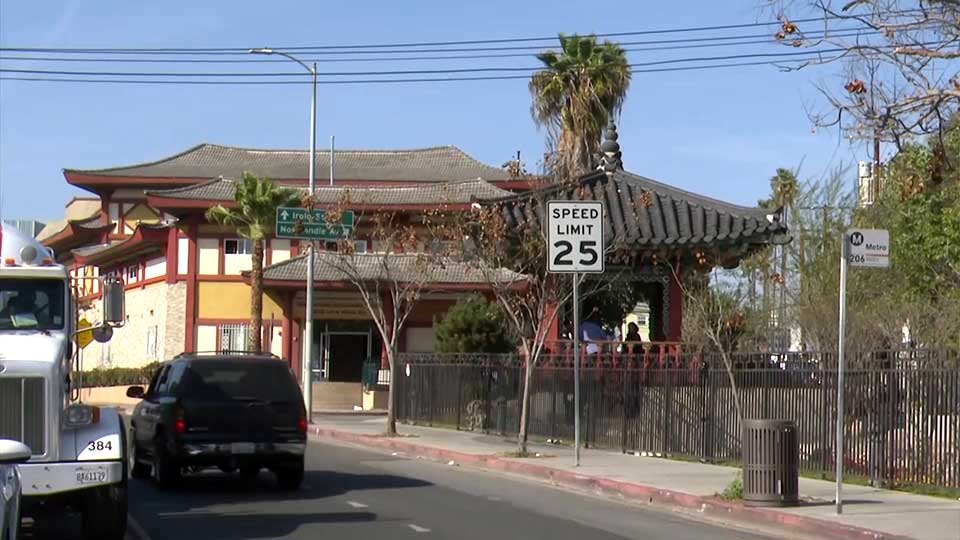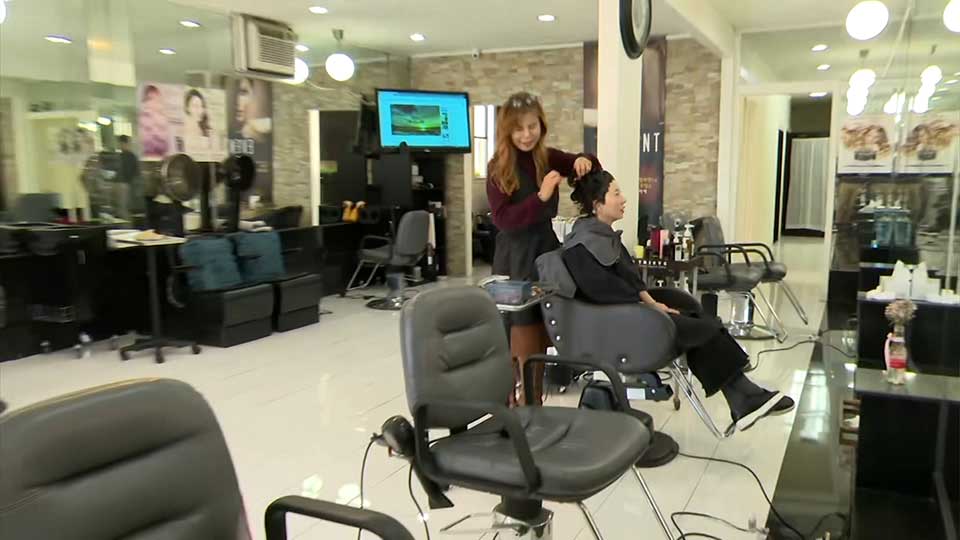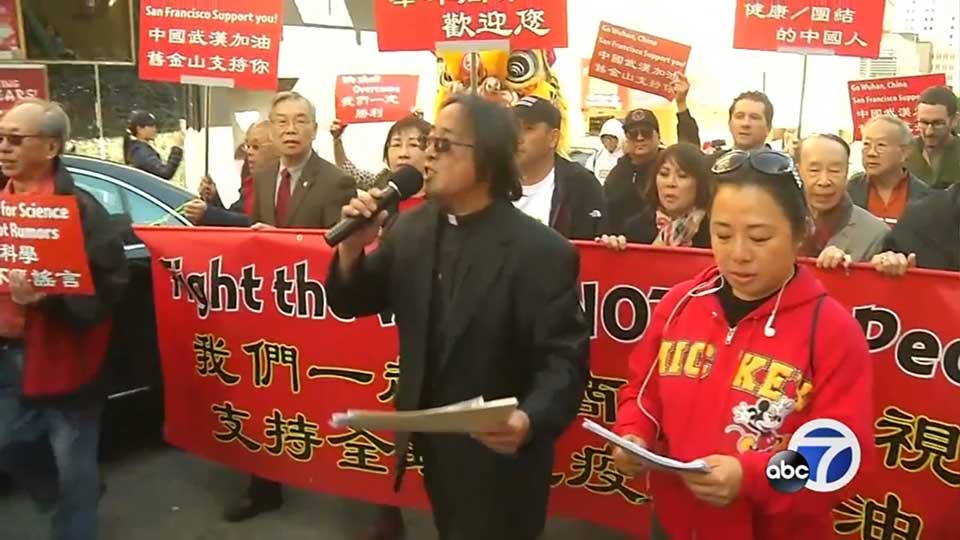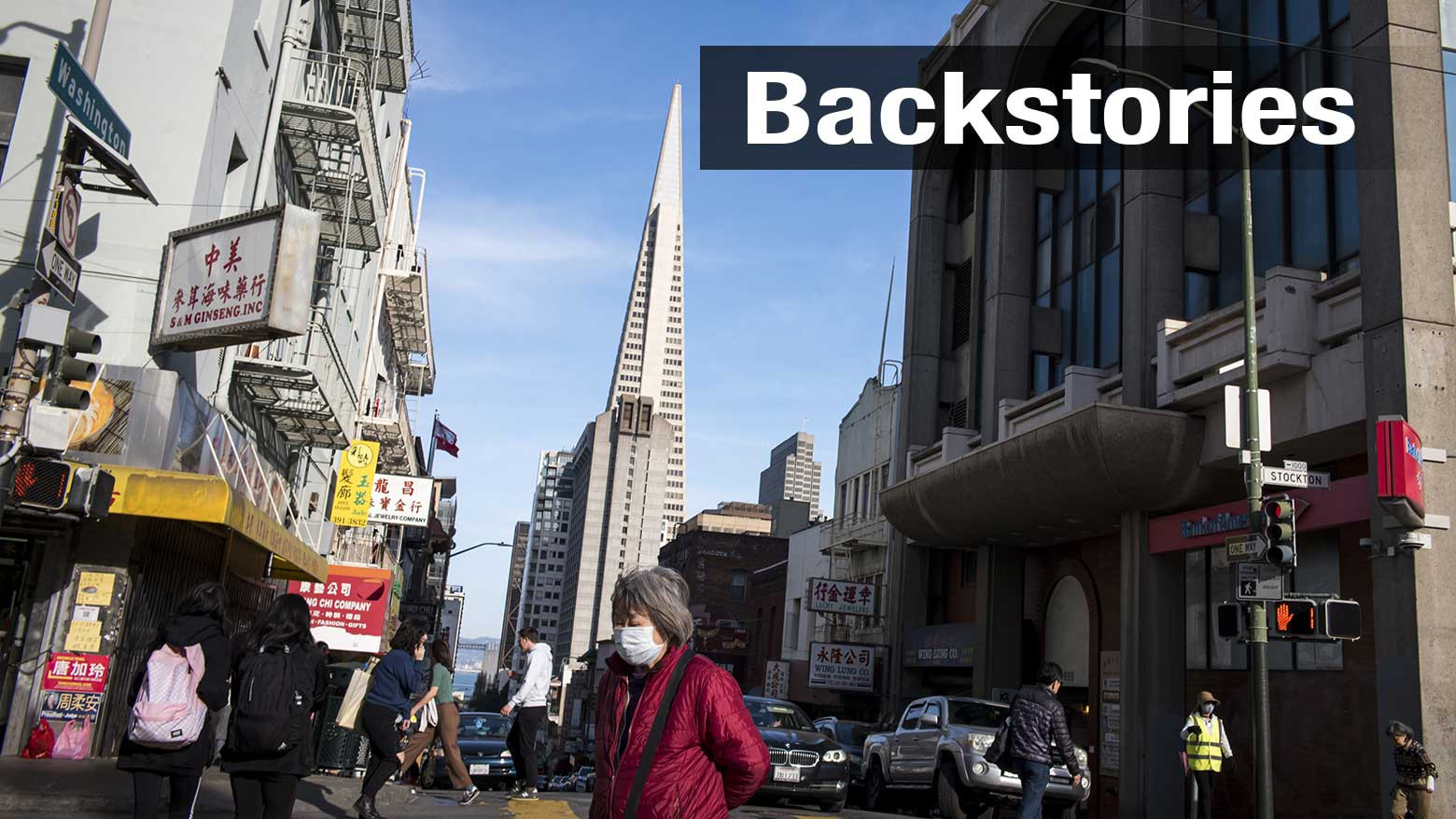My experience was far from an isolated incident. As the new coronavirus outbreak spreads worldwide, it is fostering anti-Asian racism, xenophobia and even hate crimes.
Discrimination are reported online
The anti-Asian sentiments began appearing on social media shortly after outbreak of the new coronavirus was confirmed.
A man who lives in Washington State, whose wife is Asian American, said a lady handing out food samples in a store tried to shoo his 8-year-old son away, because he may be "from China."
A video posted online shows a man yelling "Move!" at an Asian-looking passenger before spraying him on the New York subway.
Also in New York, an Asian lady was punched because she was not wearing a face mask.
When I was accosted in the street in San Francisco, I froze and waited for the tirade to finish, scared that it might turn physical.
Hurting businesses in Asian American community
Not surprisingly, anti-Asian racism is hurting businesses run by Asian Americans in the US. And nowhere is the impact being felt more than in California, home to the largest Asian American population in the country.

Koreatown in Los Angeles is usually busy with locals and tourists, but in early March, on the day state leaders declared a state of emergency, it was quiet.
Business owners say profits are plummeting. The owner of one popular Korean food restaurant says it is never more than half full these days, and he no longer wants to be featured in news coverage because he worries it will reinforce the negative stereotypes.
Kim Ji Young, a hair salon owner, said many customers have been canceling their reservations. She said business has been very quiet, and she is beginning to worry about money. Kim said she hasn't seen anything like this in the 18 years she's been open.

Massive protest
Concerns on anti-Asians have reached a fever pitch. On February 29, hundreds of Chinese Americans marched through San Francisco's Chinatown carrying banners saying "Fight the Virus, Not the People!"
Vincent Pan, a co-executive director of the Chinese for Affirmative Action advocacy group, told a local TV station that the demonstrators were fighting two viruses: the coronavirus and bigotry.

The National Council of Asian Pacific Americans and other civil rights organizations wrote to leaders of Congress, urging them to denounce the racist attacks and discrimination.
The letter reads: "We have witnessed with increasing alarm, incidents all over the country targeting the Asian American community in connection to COVID-19 ... Asian American businesses are seeing a significant decline in customers, as fear of a viral outbreak spreads globally."
It concludes: "We need leadership grounded in truth and committed to taking on racism and xenophobia directly."
Alarm from government officials and politicians
The US Department of Education is calling on schools and educators to address discrimination after noting a spike in news reports about harassment of Asian American students. It issued a statement saying they should take special care to ensure that all students can study in an environment that is healthy, safe, and free from bias or discrimination.
Senator Dianne Feinstein issued a statement saying: "People of all ages, races and ethnicities are susceptible to this disease. Bigotry toward any one group for a virus they have nothing to do with makes no sense".
When the path to contain the new coronavirus is unclear, it's natural that people feel scared. But we should always remember the nature of the problem and fight the virus, not the people.

